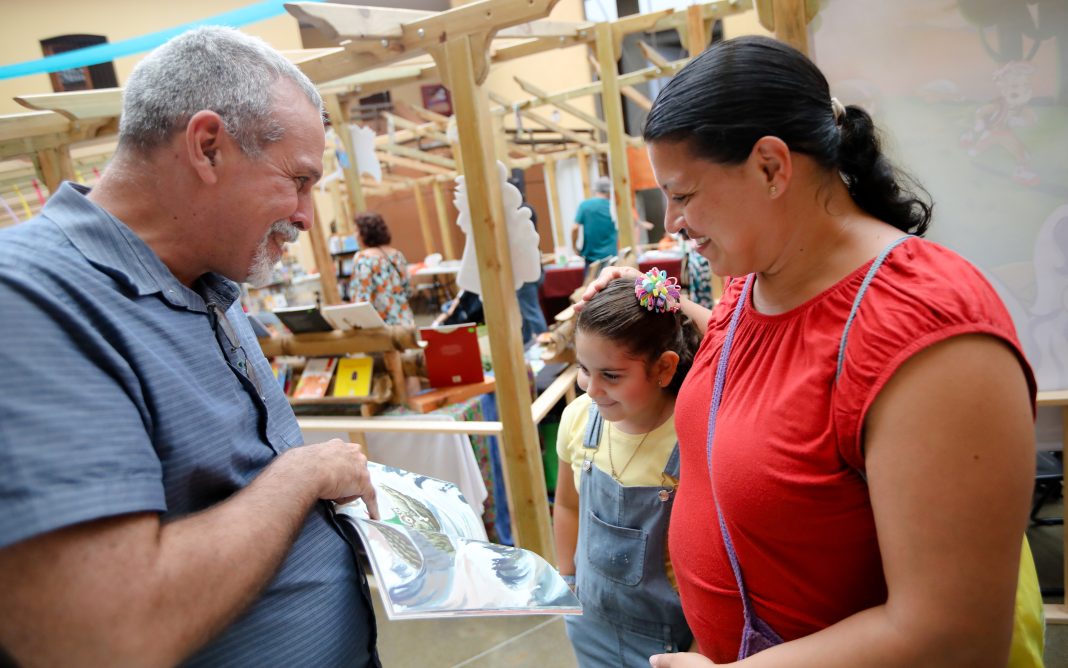In a world where everything is now digitized and children often spend seemingly endless hours in front of a screen, it appears that the habit of reading is rapidly fading. This decline is a major cause for concern because reading is essential not only for academic success, but also for personal and professional growth.
Digital devices like smartphones and tablets offer instant gratification to a new generation of kids who have increasingly shorter attention spans. The result is that kids no longer want to invest the time it takes to take in and process a good story in a quiet little reading nook. They crave the sounds, the buttons, the lights and the rush a video game or a funny TikTok can offer. Books and magazines pale in comparison. Most of the time, this makes reading seem boring and unappealing.
“I don’t necessarily believe that kids don’t read anymore,” says children’s author and illustrator Héctor Gamboa. “I believe kids today consume lots of texts through the Internet, an absurd amount of text. But our society consumes everything at great speed—not only books, but everything, even food.”
He says that narratives have been substituted by shorter versions; we’re consuming very brief stories, which gets kids used to reacting rather than thinking. No one takes the time to actually process stories anymore, which has degraded the human being’s ability to think and reflect.
Getting kids to read books again is of prime importance. Reading not only enhances cognitive abilities and academic performance, but also fosters creativity, lights up imagination and strengthens critical thinking skills.
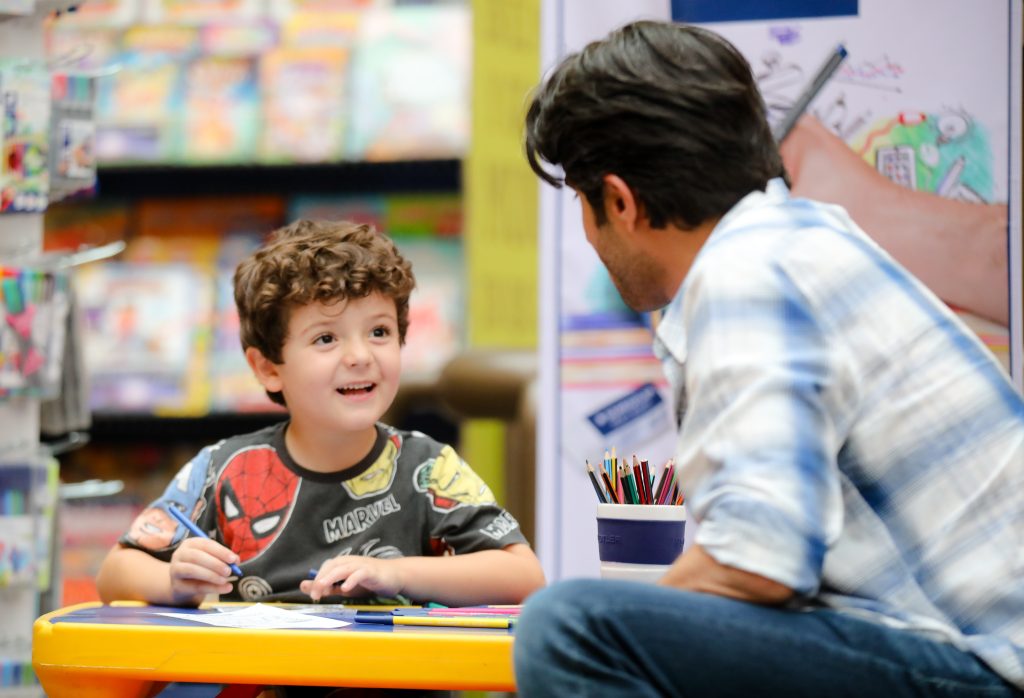
Reading plays a crucial role in the intellectual development of a child. Books expose children to new concepts and ideas; they expand their vocabulary and sharpen their comprehension skills. Children who read develop into adults who can better articulate their thoughts, allowing them to more efficiently express their ideas coherently and persuasively. When children read, they learn to analyze, synthesize and evaluate. As they encounter complex characters and plots, they are driven to think critically, make connections and draw conclusions. This mental effort later enhances their ability to think independently.
Above all, reading stimulates imagination and creativity. As they dive into fictional worlds, kids automatically start to conjure up mental images to match the words on the page. This imaginative thinking will later on help create problem-solving skills and innovative solutions. Books have unparalleled power to nurture curiosity and instill a love for learning, encouraging kids to explore diverse subjects and develop a thirst for knowledge that will extend far beyond the classroom.
But getting kids to fall in love with reading nowadays is definitely a challenge for both parents and teachers. There’s just too much competing for their already-reduced attention spans.
Author Mauricio Ventanas, creator of the series Pumbururá Pumpumpunchá and a staunch environmentalist, began writing children’s books and setting them to music in an effort to make reading more attractive to kids.
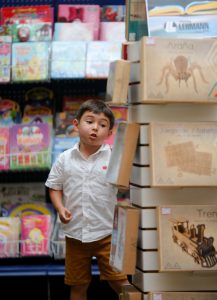
“With books, you have to sit down, imagine, and use your brain much more to create the images that the book suggests,” he adds. “It’s different than a video where the images are already there and all you have to do is receive them.”
Mireya Espinosa, a book promoter for the Libros para Niños publishing house, says that book sales have decreased in recent years, and that while parents want their kids to read, they don’t know how to achieve this. She adds that parents often choose books with buttons and sounds in order to compete with the world of games, hoping their kids will be more interested.
She also points to flaws in the way reading is taught in school. Together, we wondered: why do teachers insist on evaluating kids on the facts in books, rather than larger ideas?
“They ask them about the color of Simon Bolivar’s horse, but they fail to ask about how they felt when reading about a war,” she says.
Héctor Gamboa agrees. “I think that the whole idea of having some books be ‘required reading’ in schools is just perverse. But that doesn’t mean that parents and teachers can’t play a role in helping kids select good books,” he says. “Not all books are for all kids—plus, some books are just pure garbage. The most important thing is still finding an emotional connection to the book.”
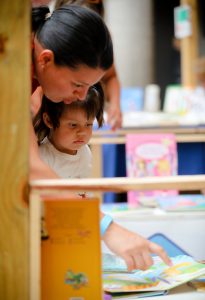
Parents play a crucial role in getting their kids to read. Every parent I talk to on the subject insists they want to cultivate a love of reading in their children, recognizing what a difference it can make in their upbringing. Karol Arias took her 5-year-old son Saúl to the recent Book Fair at the Children’s Museum to pick out some books. “I want him to get away from the screens,” she says. “I read to him every night, after our evening prayers. First it was short picture books and now we’ve moved on to chapter books. I myself love to read and think it’s very important to navigate that sea of knowledge. It’s important to encourage his imagination.”
Saúl, in turn, says: “I like books about fantastical stories. And monsters. I love monsters.”
For Victor Pérez, who attended the Book Fair with his 5-year-old daughter Jimena, leading by example is essential in getting kids to read.
“I love to read, but if kids see you with your phone or tablet all the time, they’re going to reach for that instead of a book,” he points out. “Sometimes parents don’t realize the harm they are doing by giving their kids a smartphone. They are taking away their imagination.”
Yes, parents want their kids to read, but parents are also tired. Héctor Gamboa says that reading usually begins as a love triangle between a parent, his child and a book: “It’s an act of love when a parent sits down to read to the child.” But parents come home exhausted and most times all they want is to have dinner and rest, so it becomes easier to just let the kids play on their phones or watch videos.
“We may have more things nowadays, but we lack more human connections,” he says.
Reading can help provide those connections by constructing a broader knowledge base for every individual. Through reading, children are exposed to different perspectives and historical periods, expanding their view of the world. They gain insight into different cultures and traditions, possibly making them more inclusive and tolerant people. Reading is also a window into the human experience. Children learn about different emotions when exploring the lives of different characters. As they identify with these characters, they learn to manage their own emotions and develop empathy.
Héctor Gamboa says that books help us “experience life before life. It’s an incredible and cathartic medium that helps us gather experiences without actual suffering. Life is painful, but a book is a powerful tool to expose us to experiences. That prepares us for life in a way that can’t be compared to anything else. No movie, absolutely nothing compares to a book.”
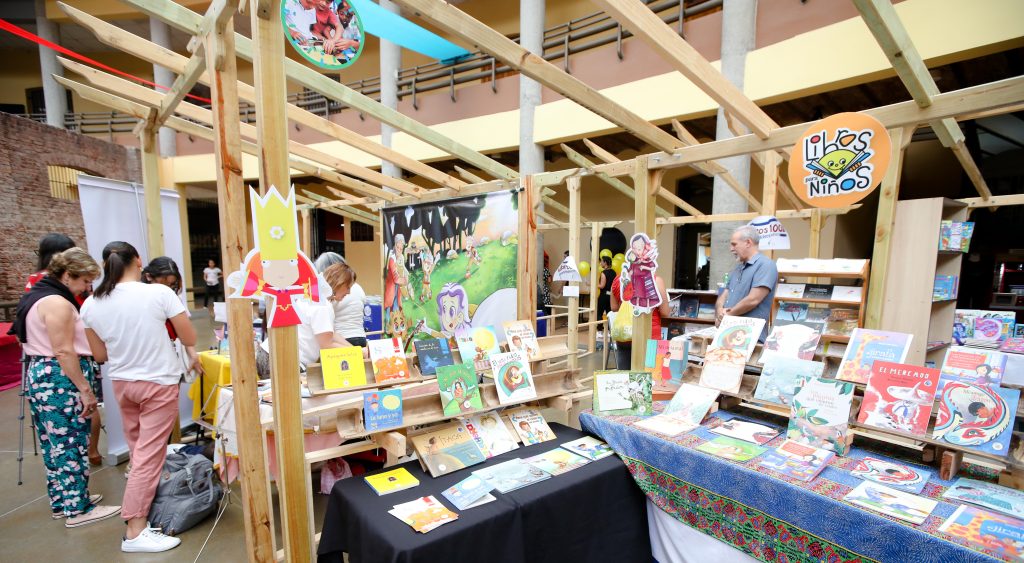
As an avid reader who’s vicariously lived a zillion adventures through other people’s words, I couldn’t agree more.
So what, you ask, can we do to get kids to read again? The long, complex answer includes everything from reading to them from birth, to finding books aligned with their interests, to limiting screen time, to not forcing them to read, but making sure that they do, to trying to convince them that they, in fact, will eventually learn to love it…
The short answer is much simpler.
We do whatever it takes.


